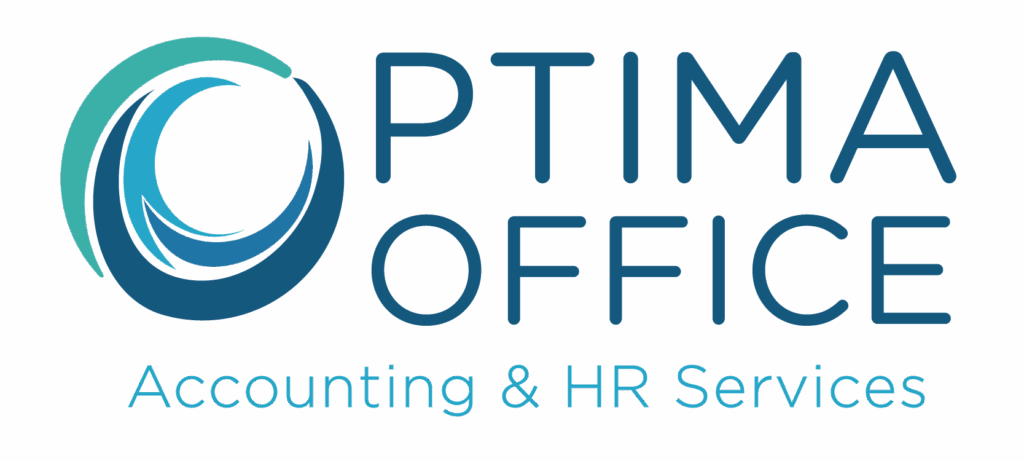Managing a growing business’s finances can be complex. That’s where a fractional controller steps in.
Here’s how this benefits your strategy: A fractional controller provides expert financial management without needing a full-time hire. This approach enhances your financial strategy and saves costs.
This blog post will explain the role of a fractional controller, the advantages of using this model compared to a full-time controller, and how to select the best professional for your company’s needs.
Understanding the Role of a Fractional Controller
A fractional controller is a professional who offers financial oversight and strategic guidance on a part-time or project basis. Unlike full-time controllers, fractional controllers provide flexibility for organizations that don’t require a full-time commitment.
These controllers maintain accurate financial records, ensure compliance with regulations, and align financial strategies with business goals. They are crucial in:
- Financial reporting
- Budgeting
- Analysis to support decision-making.
(Fractional) Controller vs CFO: What’s the Difference
7 Key Advantages of Hiring a Fractional Controller
1. Cost Efficiency
Businesses can access financial expertise without the expense of a full-time salary. This is ideal for small to medium businesses needing financial insights without the budget for full-time hires.
Statistics reveal potential savings of 40-60% by choosing this model over hiring full-time staff.
2. Expert Insights
Fractional controllers bring extensive experience from various industries. They are familiar with the latest practices and technologies, offering strategic guidance that improves financial management.
3. Scalable Financial Management
Hiring a fractional controller allows businesses to adjust their financial management seamlessly. Different growth stages require different financial guidance, and fractional controllers offer adaptable resources to fit current demands.
4. Financial Management and Compliance
Fractional controllers ensure regulatory compliance by:
- Maintaining current financial records to meet reporting standards.
- Streamlining reporting processes for accuracy, supporting audit readiness.
- Helping mitigate risks of penalties and financial misstatements
Hiring a fractional controller can benefit businesses by keeping them agile, compliant, and financially savvy.
5. Clear Performance Metrics
Fractional controllers help define and track key performance indicators (KPIs) that offer meaningful insights into business health and financial efficiency.
6. Enhanced Decision-Making
With timely, accurate reporting, fractional controllers provide clarity for leadership, enabling more informed, confident decisions around budgeting, investments, and growth strategies.
7. Strategic Partnerships
More than just number-crunchers, fractional controllers act as strategic partners who align financial strategy with overall business goals. Their outside perspective and executive-level support help companies see the bigger picture.
Who Can Benefit from Fractional Controller Services?
Small to medium enterprises (SMEs), startups, and rapidly growing businesses gain significantly from fractional controller services. These entities often seek expert financial guidance but might not have the resources or need for a full-time financial controller.
Support for Growing Businesses
A growing business expanding into new markets benefits from strategic financial planning. Navigating this growth requires avoiding pitfalls and seizing opportunities.
A fractional controller offers advice on cash flow management, risk assessment, and financial forecasting to guide expansion.
Support for Startups
Startups operating on a tight budget gain from financial accuracy and strategic insight. Fractional controllers work on a project basis, ensuring sound financial practices without permanent hires.
In today’s rapidly changing business landscape, the expertise provided by fractional controllers enhances business growth and agility.
Comparing Fractional Controllers to Full-Time Controllers
Choosing between a fractional controller and a full-time controller can shape your financial management strategy. Here are the key differences:
|
Category |
Fractional Controller |
Full-Time Controller |
|
Flexibility |
Adaptable, part-time, or project-based |
Fixed role, less adaptable |
|
Strategic Focus |
Growth-oriented, cross-industry insight |
Operational, internally focused |
|
Cost |
Pay-as-needed, lower overhead |
Higher cost with salary and benefits |
Flexibility and Adaptability
Fractional Controllers: Engaged part-time or for specific projects, they adjust to changing business needs. Ideal for startups and SMEs with variable financial demands.
Full-Time Controllers: Fixed employees with regular salaries and benefits, providing a constant presence. It may be costly for those with infrequent needs.
Strategic Benefits
Fractional Controllers: Offer diverse insights from various industries and are outcome-focused. Valuable for strategic guidance tailored to growth challenges.
Full-Time Controllers: Familiar with internal workings but may focus on daily operations over strategic initiatives.
Cost Implications
Full-Time Controllers: Involve higher costs in salaries, benefits, and overhead. Represents a large budget share for smaller businesses.
Fractional Controllers: Cost-effective, paid as needed, allowing efficient use of resources. Only pay for required expertise and time.
Each option has trade-offs. Choose based on your business’s financial strategy needs and cost considerations.
Selecting the Right Fractional Controller for Your Business
Choosing the right fractional controller for your business demands a thoughtful evaluation. It’s about aligning with your specific business objectives and needs.
Here’s a clear, concise checklist to guide your selection of a fractional controller.
Industry Experience
Does the fractional controller have experience in your industry?
Familiarity with your sector can be a game changer. It means the controller already understands the nuances and unique regulations your business may face.
Service Flexibility
Can the fractional controller adapt to your business’s changing needs?
You need someone who offers flexible engagements, whether part-time or project-based. This way, they can adjust as your business demands fluctuate.
Communication Skills
How effective are the controller’s communication abilities?
Clear, timely communication is crucial. You’ll need to grasp complex financial data and strategies without needing an accounting degree.
Alignment with Business Objectives
Is the controller attuned to your business goals?
They must align with your financial landscape and should craft strategies that support your business objectives, making every financial decision work toward your mission.
Metrics for Success
What success metrics will the fractional controller track?
Set clear performance indicators matching your business targets. This allows you to monitor progress and adjust strategies over time effectively.
Unlocking Financial Growth Through Fractional Expertise
It’s evident how fractional controllers revolutionize financial management for growing businesses. They bring expert financial oversight and strategic insights without requiring a full-time hire.
This flexibility enhances financial management and offers significant cost savings. Businesses can allocate resources more effectively.
Consider: Could your business benefit from the dynamic capabilities of a fractional controller? Imagine integrating such a role to truly optimize your financial strategy.
Engaging a fractional controller might be the decision that elevates your financial operations.
Is a fractional controller the right move for your business?
The Optima team is ready to help you explore your options and align your financial strategy with your growth goals. Let’s chat! ➝
Frequently Asked Questions
Why does a company need a Controller?
Watch the 1-minute video below with Optima’s CEO, Jennifer Barnes, to learn the signs that your business needs a controller.
Can small businesses afford fractional controllers?
Absolutely. Small businesses can benefit greatly from hiring a fractional controller. By doing so, companies can afford to access specialized financial expertise. This allows them to allocate resources wisely while gaining essential financial insights otherwise unattainable on a limited budget.
How do fractional controllers improve financial management?
Fractional controllers boost financial management through data-driven insights and efficient cash flow strategies. They perform thorough forecasting and risk assessments for informed decision-making.
Additionally, they ensure regulatory compliance, reducing costly errors. Their expertise in performance metrics helps measure success and align strategies with business objectives.
What’s the difference between a fractional controller and a fractional CFO?
While both roles support financial leadership, a fractional controller focuses on financial accuracy, compliance, and reporting, ensuring your books are clean and audit-ready. A fractional CFO, on the other hand, is more forward-looking—guiding financial strategy, forecasting, and fundraising.
Many growing businesses benefit from having both roles in place at different stages of growth.




